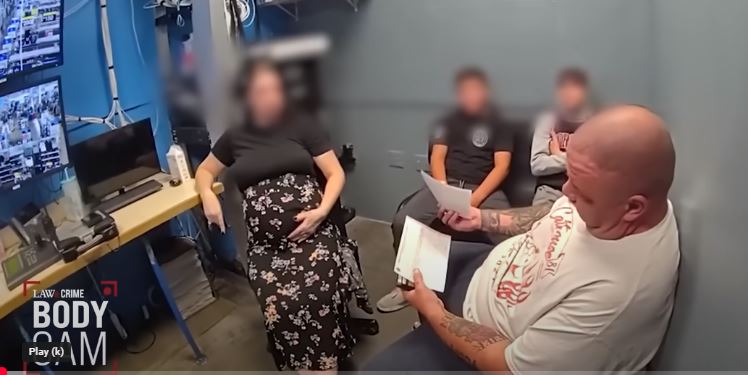Kentucky State Police officers searched Edward Lewis’s laptop, cell phone, and thumb drive and found evidence of child pornography. Lewis moved to suppress the evidence, arguing that it was obtained through an unlawful search and seizure of his electronic devices
United States 6th Circuit Court of Appeals
Districts Covered:
- Eastern District of Kentucky
- Western District of Kentucky
- Eastern District of Michigan
- Western District of Michigan
- Northern District of Ohio
- Southern District of Ohio
- Eastern District of Tennessee
- Middle District of Tennessee
- Western District of Tennessee
Case: United States v. Lewis
e-Journal #: 80155
Court: U.S. Court of Appeals Sixth Circuit ( Published Opinion )
Judges: Moore, Clay, and Gibbons
Concerns:
Search & seizure; Motion to suppress evidence; Validity of a search warrant; “Probable cause”; Applicability of the good-faith exception to the exclusionary rule; United States v Leon; Whether reliance on the search warrant was reasonable; A “bare bones” affidavit; United States v Weaver; United States v White; Nathanson v United States; Aguilar v Texas;
Exceptions to the warrant requirement; Consent; Applicability of the plain-view doctrine; Forfeiture
Summary:
The court held that some of the evidence taken from defendant-Lewis’s electronic devices “was obtained through searches and seizures that were not supported by a valid warrant or a valid claim to an exception to the warrant requirement.”
Thus, it reversed the order denying his motion to suppress, vacated his conviction, and remanded. After his motion was denied, he signed a conditional plea agreement pursuant to which he pled guilty to producing child pornography “but retained his right to appeal the district court’s suppression order and to withdraw his plea if he prevailed on that appeal.”
On appeal, the government did not dispute that the affidavit in support of the search warrant (made by a detective, G) did not establish probable cause, and the court held that it “violated the Fourth Amendment’s probable-cause requirement.”
The district court found the good-faith exception to the exclusionary rule applied. The issue here was “whether law-enforcement officers reasonably relied on the search warrant.” The court concluded they did not because G’s affidavit “was a bare-bones affidavit.”
The court found that, viewing it “under the totality of the circumstances, ‘the combined boilerplate language and minimal . . . information provide few, if any, particularized facts of an incriminating nature and little more than conclusory statements of affiant’s belief that probable cause existed regarding criminal activity.’”
It determined that in “omitting the essential facts of his investigation and communicating only his bottom-line conclusion, [G] asked the magistrate to find probable cause based solely on his say-so.
‘No reasonable officer could have believed’ under those circumstances ‘that the affidavit was not so lacking in indicia of probable cause as to be reliable.’” The court found that the “affidavit here much more closely resembles the bare-bones affidavits in Nathansonand Aguilar than the affidavit in White.”
It rejected the government’s suggestion “that ‘reasonable inferences’” could rescue the affidavit. The court held that applying the good-faith exception under the circumstances here “would be inappropriate.”
As to the government’s reliance on the consent exception to the warrant requirement, the “district court did not clearly err in finding that [G] and the other law-enforcement officers exceeded the scope of Lewis’s consent when they seized his electronic devices and forensically examined them.” And the government forfeited its plain-view argument and did not show plain error.
FAQ for United States v. Lewis
Q: What is United States v. Lewis?
A: United States v. Lewis is a 2023 case decided by the United States Court of Appeals for the Sixth Circuit. The case involved a defendant who was convicted of producing child pornography. The defendant argued that the evidence obtained from his laptop and cell phone should have been suppressed because the search warrant was invalid.
Q: What was the outcome of the case?
A: The Sixth Circuit vacated the defendant’s conviction and ordered a new trial. The court found that the search warrant was invalid because it did not establish probable cause. However, the court also found that the officers had acted in good faith in reliance on the warrant, so the evidence would not be suppressed.
Q: What is the significance of the case?
A: The case is significant because it reaffirms the importance of probable cause in search and seizure cases. The court also held that even if a search warrant is invalid, the evidence obtained may not be suppressed if the officers acted in good faith in reliance on the warrant.
Q: What are the implications of the case for law enforcement?
A: The case reminds law enforcement that they must have probable cause before obtaining a search warrant. The case also highlights the importance of acting in good faith when executing a search warrant.
Q: What are the implications of the case for defendants?
A: The case is a reminder to defendants that they have the right to challenge the validity of a search warrant. If a defendant believes that a search warrant is invalid, they should file a motion to suppress the evidence obtained from the search.
OTHER FAQ
Q: What is the difference between probable cause and reasonable suspicion?
A: Probable cause is a higher standard than reasonable suspicion. Probable cause is required to obtain a search warrant, while reasonable suspicion is required to conduct a Terry stop.
Q: What is a Terry stop?
A: A Terry stop is a brief detention of a person by law enforcement based on reasonable suspicion that the person is involved in criminal activity.
Q: What is a motion to suppress?
A: A motion to suppress is a motion that a defendant can file to ask the court to exclude evidence from trial. A defendant may file a motion to suppress if they believe that the evidence was obtained in violation of their constitutional rights.
Q: What happens if a defendant’s motion to suppress is granted?
A: If a defendant’s motion to suppress is granted, the court will exclude the evidence from trial. This means that the government will not be able to use the evidence to prove its case against the defendant.
Q: What happens if a defendant’s motion to suppress is denied?
A: If a defendant’s motion to suppress is denied, the government will be able to use the evidence against the defendant at trial. However, the defendant may still be able to challenge the evidence at trial on other grounds, such as relevance or hearsay.
More Posts

Michigan House Bill 5450 of 2024
Step by StepMichigan House Bill 5450 of 2024 is a bill that was introduced by Representative Sharon MacDonell on February 14, 2024. The bill was referred to the House Committee on Education and was reported with a recommendation with a substitute on May 14, 2024. The...

Trump plans – How does Cannabis Business fit in?
You work hard. Now get ready to work harder to prepare to give more.President Biden's administration has proposed the reclassification of marijuana from a Schedule I controlled substance to a Schedule III drug, which recognizes its medical benefits. This significant...

When Can Police Take Your Dash Cam?
You work hard. Now get ready to work harder to prepare to give more.In Michigan, police can take your dashcam footage in specific situations, primarily when they believe it could serve as evidence in a criminal investigation. Michigan law permits officers to seize...

When Can Police Confiscate Your Drone in Michigan?
Someone asked us... Can the police take my drone?As we have seen ... They can charge, arrest you and take your stuff for whatever they want. You'll have to fight it out in court to get it back.In Michigan, the police can confiscate your drone under certain...

People who are going to need a Lawyer – November 12, 2024
People who are going to need a LawyerMan so drunk field sobriety tests were ‘too dangerous’ sentenced to life in prison for repeated DWI convictions‘Several terabytes’: Diddy prosecutors shed light on ‘voluminous’ discovery, including iCloud accounts and dozens of...

Cambridge Analytica data breach comes before court
Oral arguments in Facebook v. Amalgamated Bank will beginThe justices are set to review securities law as they hear arguments in a significant case linked to the 2015 data breach involving Cambridge Analytica and Facebook. The tech giant’s effort to fend off federal...

Search and Seizure – Consent or Plain view
The Fourth Amendment was established to protect individuals from unreasonable searches and seizures, yet there are exceptions.In Michigan, understanding the concepts of search and seizure, particularly regarding consent and plain view, is crucial for both law...

Using a computer to commit a crime – The latest add on charges
FRAUDULENT ACCESS TO COMPUTERS, COMPUTER SYSTEMS, AND COMPUTER NETWORKS (EXCERPT)Act 53 of 1979752.796 Use of computer program, computer, computer system, or computer network to commit crime. Sec. 6. (1) A person shall not use a computer program, computer,...

A drunk driving investigation, a car wreck and a blood draw
A Case Summary: People v. Blake Anthony-William BartonOn October 11, 2024, the Michigan Court of Appeals issued a decision in the case People of the State of Michigan v. Blake Anthony-William Barton. The case involved a drunk driving investigation following a car...

Police say they can tell if you are too high to drive
Police say they can tell if you are too high to drive. Critics call it ‘utter nonsense’Haley Butler-Moore sped up to pass a semi on the highway when she suddenly saw the police lights. She’d left Albuquerque hours earlier, heading to a Halloween party in Denver. Tired...











